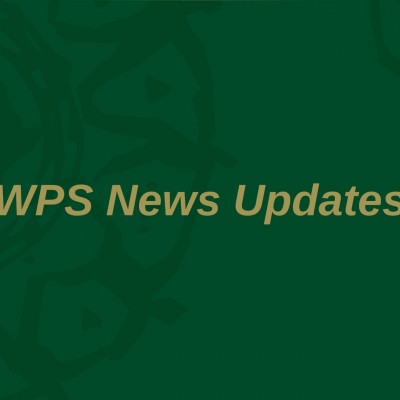Demonstrate commitment to Gender Equality and Women’s Empowerment with Actions; Meeting with Civil Society Organisations Emphasises
Source: AfricaNews
The speedy implementation of commitments to Gender Equality and Women Empowerment (GEWE) has yet again been emphasized in a Declaration and Call for Action between the African Union Commission (AUC) and the Civil Society Organizations (CSOs). The Declaration and call for action is an outcome statement of the AUC, Women, Gender and Development Directorate (WGDD) meeting with CSOs, to deliberate on scaling up actions to address the impact of the COVID-19 pandemic on gender-specific concerns. The latest round of engagement with the CSOs was virtual convened on 14th July 2020 with the support of the Gender Is My Agenda Campaign (GIMAC) Network, gathering rich perspectives and contributions from the academia, the media, youth, traditional leaders, faith-based organizations, persons living with disabilities and Africans in the diaspora, in a productive review and consolidation of a common position on the gender responsiveness of the African Union (AU) and Member States in the COVID-19 response strategies.
Read more here.
Empowered Women Can Unlock Africa’s Development Dividends
Source: Africa Renewal / Kingsley Ighobor
Under-Secretary of the United Nations Zainab Hawa Bangura is the Director-General of the United Nations Office at Nairobi (UNON), a position she has held since 30 December 2019. Before her current appointment, she was the UN Special Representative on Sexual Violence in Conflict. In this interview with Africa Renewal’s Kingsley Ighobor, Ms. Bangura discusses gender and youth empowerment, the AU’s “Silencing the Guns by 2020” initiative, among other issues.
Read excerpts from the interview here.
Race, Justice and New Possibilities: 20 Years of the Women, Peace and Security Agenda
Source: LSE WPS Blog / Toni Haastrup & Jamie J Hagen
As the international community celebrates the 20th anniversary of the Women, Peace and Security (WPS) agenda, New Directions reflects on its past (and future) and the assumptions inherent within the global normative framework. We argue that the WPS agenda is illustrative of a practice of global politics that can be rooted in exploitative patterns of interaction between the Global North and so-called Global South. The dynamic of this relationship ultimately inhibits the emancipatory potential of the WPS agenda advocated for by activists. We argue that the current limits of the WPS agenda is because of the embeddedness of racism within International Relations.
In the wake of the brutal racist murder of Mr George Floyd, and the COVID-19 pandemic and its responses, it is even more urgent to unpack the embeddedness of racial hierarchies within the practices of the WPS agenda. Crises tend to reinforce the status quo or engender regression, and yet, it is imperative that we do not return to ‘normal’. In our commitment to a progressive WPS agenda, we interrogate how global racial hierarchies operate through an in-depth focus on National Action Plans (NAPs). NAPs are a means through which states articulate their priorities within and commitments to the WPS agenda. NAPs, we show, are more than just documents – they are political and policy artefacts that show relative power, state intent and are used as tools for action.
For us, NAPs also present a fascinating puzzle since we see a division wherein the focus of Global North NAPs is on the Global South, while Global South NAPs tend to be more inward looking. Examining NAPs then helps us to understand who the WPS agenda is about, and who it is for. It also highlights how WPS is, and can be, localised (or not).
Read full blog post here.
LSE WPS Blog Launches the Women, Peace and Security Forum
Source: LSE WPS Blog
The WPS Forum is a space on the LSE WPS Blog to host a dialogue around a particular topic, theme or publication. These pieces will work in conversation, rather than being standalone commentaries, providing discussion and dialogue centred around particular publications – a new book, a collection of conference papers and/or panels, events, a journal article, for example.
The Forum will bridge the gap between individualistic blog pieces and longer writings. It will be a space for critical conversations that provide the reader with more in-depth analysis and different viewpoints on key themes and issue areas, aimed at advancing conversations in academic and practitioner spaces. The format of each forum may vary depending on the subject of the conversation. Responses and contributions from leading scholars, activists and practitioners will be sought on particular topics, and forum proposals will also be accepted and reviewed.
Find out more here.
Getting it Right: Putting Women, Peace and Security at the Centre of the Integrated Review
Source: GAPS
As the UK Government has resumed the Integrated Review on Security, Defence, Development and policy, GAPS and its members make the submission that this is a key moment for the UK Government to reaffirm its commitments to gender equality, the Women, Peace and Security agenda, and the Sustainable Development Goals (SDGs) especially as we are in the 20th anniversary year of UNSCR 1325. To make the most of the opportunity, GAPS and its members have set out 4 key priorities that should be fully considered throughout the process of the review. These are laid out here in this briefing paper.
The briefing addresses that, in order to deliver meaningful progress on existing commitments made on women and girls’ rights, peace and security, the right combination of vision, policies, capabilities and funding is necessary. This briefing also speaks to the need for a robust consultation process. Meaningful engagement that is timely, inclusive, transparent and substantive, should also be at the heart of both the Integrated Review process and the future foreign, security and development policies it shapes.
Find the briefing here.



